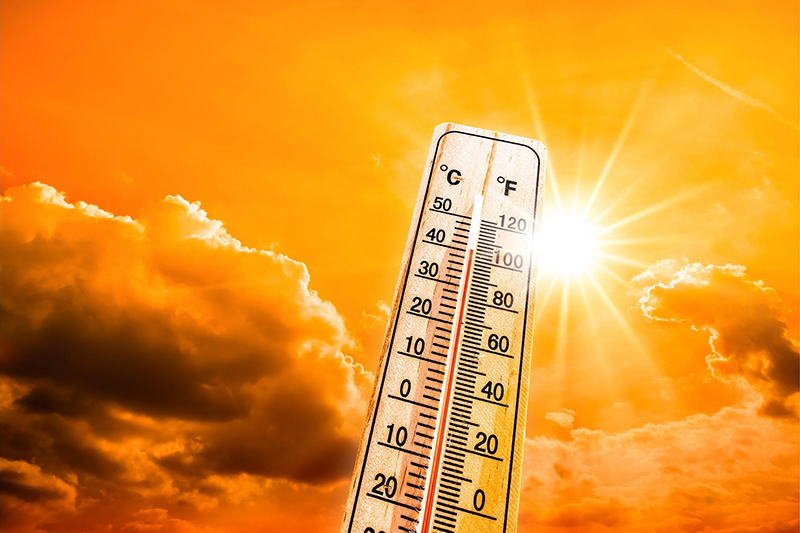High temperatures have profound impacts on the human body, leading to a range of serious health issues. Prolonged exposure to extreme heat results in heat exhaustion, characterized by heavy sweating, weakness, dizziness, nausea and headaches. If left untreated, heat exhaustion escalates to heat stroke, a life-threatening condition marked by a body temperature above 104°F (40°C), confusion, rapid pulse and loss of consciousness. Heat stroke requires immediate medical attention to prevent severe complications or death.
Dehydration is another critical concern in high temperatures. When the body loses more fluids than it takes in, it leads to dehydration, which impairs normal bodily functions. Dehydration compromises kidney function and increases the risk of urinary tract infections. Additionally, it causes symptoms such as dry mouth, decreased urine output and extreme thirst, further exacerbating heat-related illnesses.
High temperatures also place extra stress on the cardiovascular system. The heart must work harder to pump blood to the skin's surface to dissipate heat, which is particularly taxing for individuals with preexisting heart conditions. Similarly, respiratory diseases are aggravated by extreme heat, as hot air may increase the difficulty of breathing and exacerbate conditions like asthma and chronic obstructive pulmonary disease (COPD).
Moreover, high temperatures influence the spread of infectious diseases. Warm and humid conditions create favorable environments for mosquitoes, increasing the transmission of vector-borne diseases such as malaria, dengue fever and Zika virus. These diseases thrive in hot climates where mosquito populations can flourish. Heat also affects the proliferation of waterborne diseases like cholera, as warmer water temperatures and increased rainfall contaminate drinking water sources with pathogens.
In addition to vector-borne and waterborne diseases, high temperatures also affects food safety. Bacteria such as Salmonella and E. coli grow more rapidly in warm conditions, increasing the risk of foodborne illnesses. Proper food storage and handling become even more critical during heatwaves to prevent outbreaks.
The impacts of high temperatures on human health are wide-ranging and potentially severe. Proactive measures to mitigate heat-related risks, strengthen public health infrastructure and build community resilience are crucial for safeguarding population health in the face of rising global temperatures. With concerted efforts to address the underlying drivers of climate change and implement effective adaptation strategies, the adverse health consequences of extreme heat are effectively managed.
